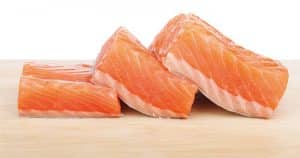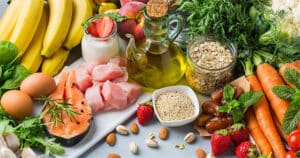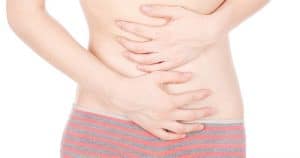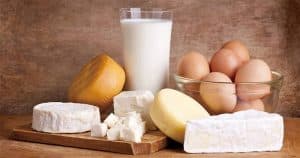I recently asked my Facebook followers what they would like more information on and one lovely lady asked about how to lower testosterone in PCOS. So, I thought that we could look at the top testosterone lowering foods for women with PCOS that we can incorporate into our PCOS diet. So, as I really want to give you the information that you need, I’m going to give you my top 5 testosterone lowering foods. So, if you want to know how to decrease testosterone level in female naturally, this is for you!
But before we get on to that, it’s important to understand a little bit more about testosterone and PCOS.
Testosterone and PCOS:
We know that Polycystic Ovarian Syndrome is characterized by high androgen (testosterone) levels (1). Testosterone is also responsible for a lot of our pesky and often embarrassing symptoms:
- Hair loss
- Acne
- Hirsutism and excess hair growth
- Irregular menstrual cycle
Another complication in the testosterone equation is that research has shown that insulin triggers testosterone to be released in women with PCOS (2). This means that if our blood sugars spike, causing a release of a lot of insulin, our testosterone levels are also going to rise, making our PCOS symptoms worse. This is another reason that a PCOS diet is crucial in managing our symptoms.
One of the benefits of following a good PCOS diet is that it is one of the natural ways to decrease testosterone in females who also have PCOS,
Okay, so let’s have a look at the top 5 anti androgen foods for females that you can include in your PCOS diet to lower your testosterone levels.
Flaxseeds
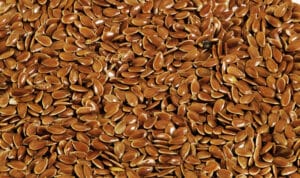 Flaxseeds come in two varieties: brown and golden (also known as linseed) (3). They are rich in Omega 3 fatty acids, manganese, Vitamin B1, amongst others. (4)
Flaxseeds come in two varieties: brown and golden (also known as linseed) (3). They are rich in Omega 3 fatty acids, manganese, Vitamin B1, amongst others. (4)
There was a recent case study done on one 31 year old woman with PCOS. She was prescribed 30g of flaxseeds per day for a period of 4 months. The study reports a 70 – 80% decrease in free and serum testosterone, as well as an improvement in hirsutism. Obviously this study should be taken with a pinch of salt: the results are based on one woman’s response to flaxseed. It may well be worth a try though.
Linseeds and ground flaxseed can be added to smoothies, gluten free muffins, sprinkled over porridge or salads.
Foods Rich In Omega 3’s
It’s well-known that Omega 3’s lower testosterone levels in women with PCOS and that is why I have always recommended supplementing with Omega 3 to help manage PCOS (5).
Foods that are rich in Omega 3 include (6):
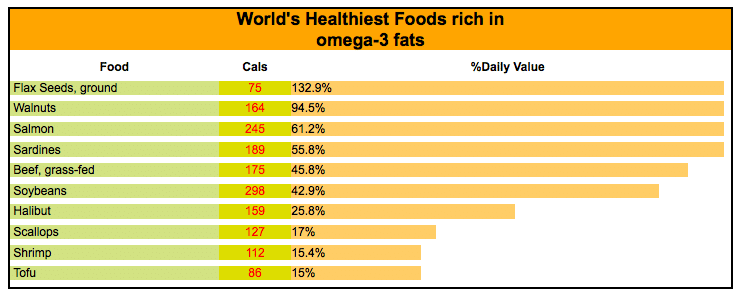
I would just be weary of the soybeans and tofu as soy can delay ovulation in women and if you are trying to conceive, you probably want to avoid that.
Spearmint Tea
A study was conducted in Turkey where women with PCOS were advised to drink 2 cups of spearmint tea per day for a month (7). Androgen levels were significantly lower after a month and women reported improved hirsutism but their clinical scores for hirsutism on the Ferriman Galway scale did not change.
The authors concluded that spearmint tea is effective in lowering testosterone levels but hirsutism takes at least 6-12 months to resolve so the study wasn’t long enough to see significant improvements in this symptom.
I’m often asked if peppermint tea has the same effect. I think it’s really important that you get spearmint tea as this is what the research was done on.
I have personally struggled to find spearmint tea in the supermarkets or health shops in my area and so I tend to order mine online. Here is one that you can get from Amazon
Whole unprocessed Foods with Low Glycemic Loads
 This comes back to what we spoke about at the beginning of the article. Any processed foods tend to have a higher glycemic index and will cause a spike in your sugars. This spike will lead to increase in insulin and therefore an increase in your testosterone.
This comes back to what we spoke about at the beginning of the article. Any processed foods tend to have a higher glycemic index and will cause a spike in your sugars. This spike will lead to increase in insulin and therefore an increase in your testosterone.
So, make sure that you are eating foods that are unprocessed, high in fibre and low glycemic loads to help lower your testosterone levels.
Supplements
These are technically not a food but I feel like any discussion on PCOS and diet is incomplete without looking at supplements.
Inositol
I think this is one of the most important supplements for PCOS. It has been shown to lower testosterone (8) as well as improve egg quality and spontaneous ovulation in women with PCOS (9). All of the research has been done on 4g of Inositol per day, taken with 400mcg of Folic Acid per day.
Omega 3
We have spoken about foods rich in Omega 3 but you can also supplement with Omega 3. Make sure that you get 180mg EPA and 120mg DHA daily.
Vitamin D
Many of us are deficient in Vitamin D and it has an implication for insulin sensitivity and testosterone levels (10). The Vitamin D council suggests that you have at least 1000IU per day (11).
Summing it Up:
We know that diet is crucial in the management of PCOS and research has shown that dietary changes can improve all of the markers of PCOS, including testosterone levels. So, make sure that you get loads of spearmint tea, flaxseeds, Omega 3-rich foods, low GL foods (all foods that lower testosterone in females) and supplements. I have no doubt that these will go a long way in helping you to manage your PCOS.
Is there something that I have left out? I’d love to hear from you! Leave me a comment below…
- sustainable pcos weight loss strategies
- Over 5500 women have done it and seen results
- [bonus] combat cravings kit
- [bonus] intermittent fasting for pcos course
- [BONUS] personalised nutrition plan
JOIN OVER 5,500 OTHERS



